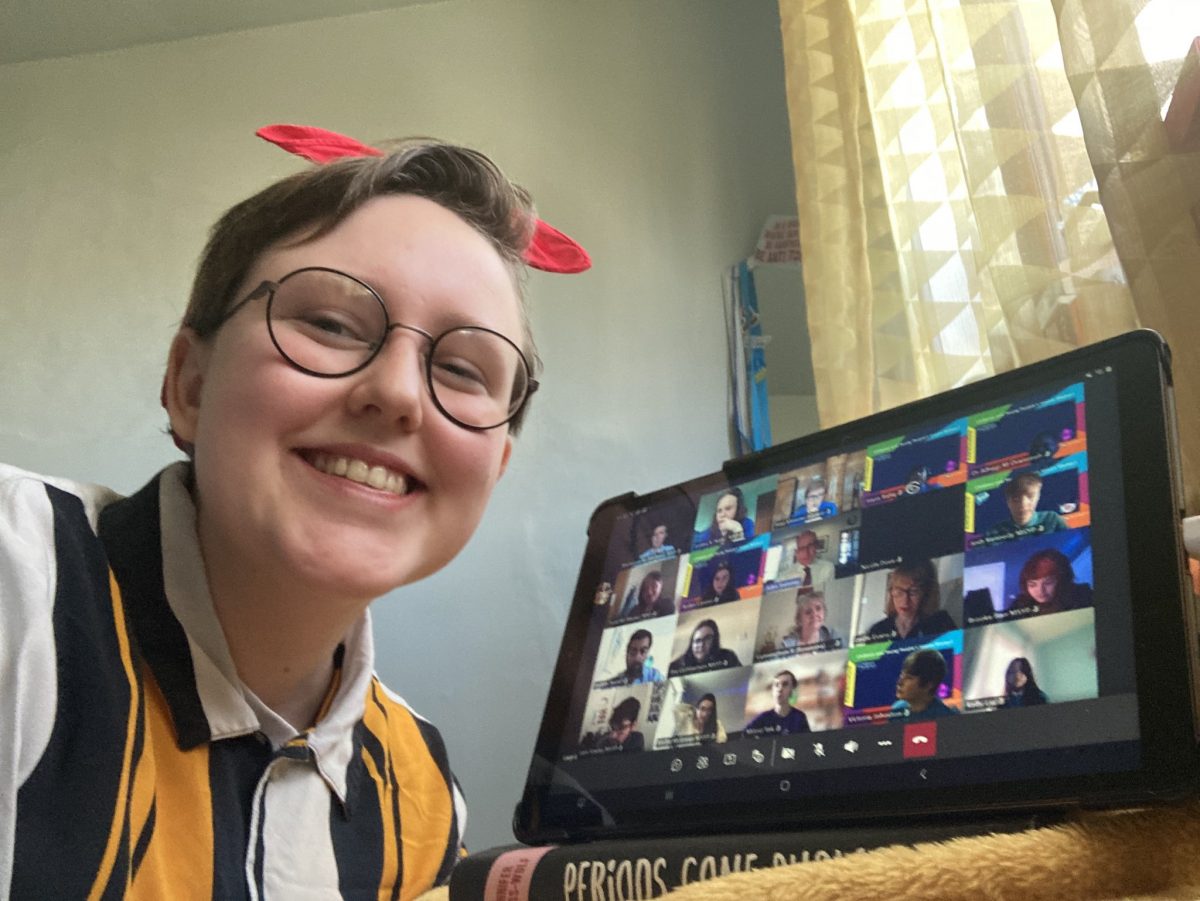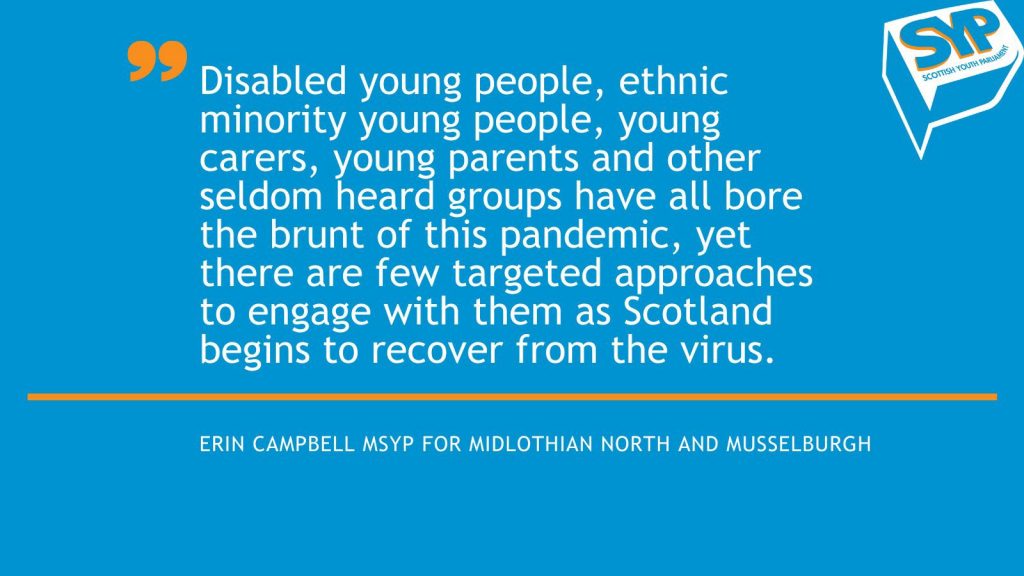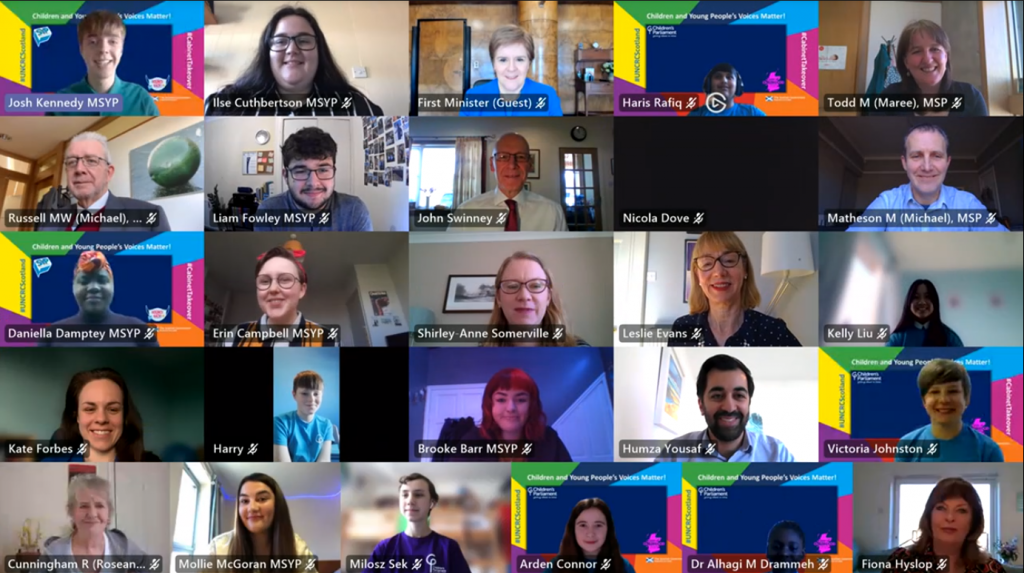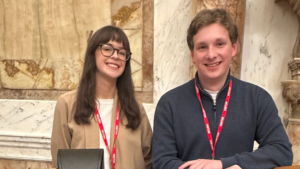During the fifth annual cabinet meeting with children and young people, I delivered a speech to Government ministers on the importance of listening to the voices of seldom heard young people. At the time, we were nearing the end of Scotland’s second Covid-19 lockdown, so it was a particularly poignant time to deliver the speech, as the seldom heard groups I talked about are the hardest hit by the inequalities coronavirus has uncovered.
The experience was incredible, and one that I will carry with me long into adulthood (even if it was through a screen!) I am hopeful that our words will make a tangible impact on the future of marginalised groups such as LGBT, disabled, Black and transgender young people living in Scotland. Here’s the speech:
Hi everyone!
Before I begin, I want to say how incredibly grateful I am to have the opportunity to speak with you today on behalf of Scotland’s young people. I would also like to offer my sincere thank you to the Scottish Government for working to keep us all safe during the Coronavirus pandemic.
I felt it was only appropriate to begin with the words of a young person from a seldom heard group that I will be referencing. ‘‘I think decision makers focus on things that will make a change to them, but act like they care about things that will change forus’’ Those are the words of a young parent who participated in one of SYP’s manifesto focus groups . We certainly do not believe that these words reflect the Government’s intentions. In fact, SYP hugely appreciates the work of the Scottish Government to consult with children and young people in decision making, not least by working to incorporate the UNCRC into law.
However, it’s clear that seldom heard groups believe a culture change is needed to ensure that we can meaningfully engage with them. This past year has not been easy for anyone but it’s very obvious that Covid-19 has not affected us all in the same way. Disabled young people, young people of colour, young carers, young parents and other seldom heard groups have all bore the brunt of this pandemic, yet there are few targeted approaches to engage with them as Scotlandbegins to recover from the virus.
This is one of the many reasons that we are calling for policymakers to take action to ensure they listen to young people from seldom heard groups when developing policy.
SYP has always advocated for a rights based approach to engagement. This means that children and young people’s views should be involved in decision making from the very beginning of policy development.
This Government has made a commendable effort to directly engage with some seldom heard groups on the issues that affect them directly. But it can be difficult for them to have their say in the every day issues that affect us all.
When we consulted with young refugees and asylum seekers for our 2021-26 manifesto, yes they spoke about issues such as family reunification, but they also wanted to talk about education and travel costs. Young people from families with experience of alcohol abuse discussed treating drug misuse as a public health problem, but they were also concerned about the cost of the school day.
My question to you is: If we don’t engage with seldom heard groups on issues which affect all young people, can we really claim to represent seldom heard groups at all?
Therefore, on behalf of SYP, the young people I represent, and young people all across Scotland, I’m calling on the Scottish Government to make engaging with seldom heard groups a priority in their work. To do this effectively, I’m asking you to lead the way in creating the culture change that is required as part of the UNCRC Bill implementation to ensure that all young people are heard by decision makers. This should begin with ensuring that all Scottish Government staff have the knowledge and resources to engage with seldom heard groups. Any guidance on this should, of course, be co-designed with the young people in question and SYP are always willing to assist with this process.
Because after all, seldom heard groups are not hard for decision makers to reach but they are easy for them to ignore.
Thank you.




